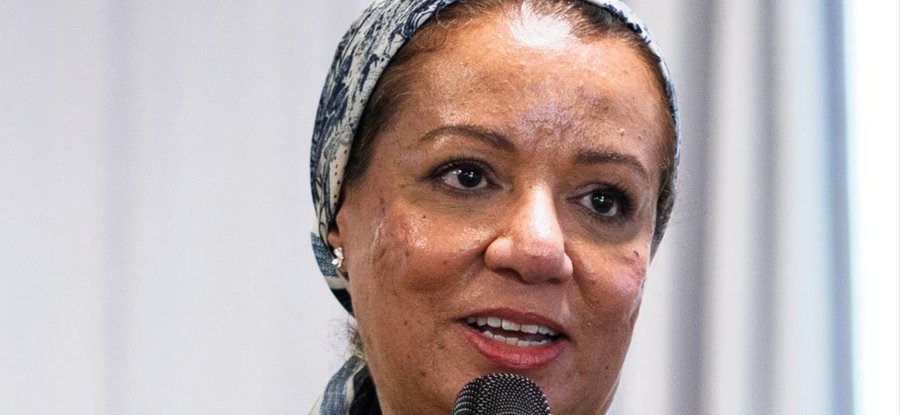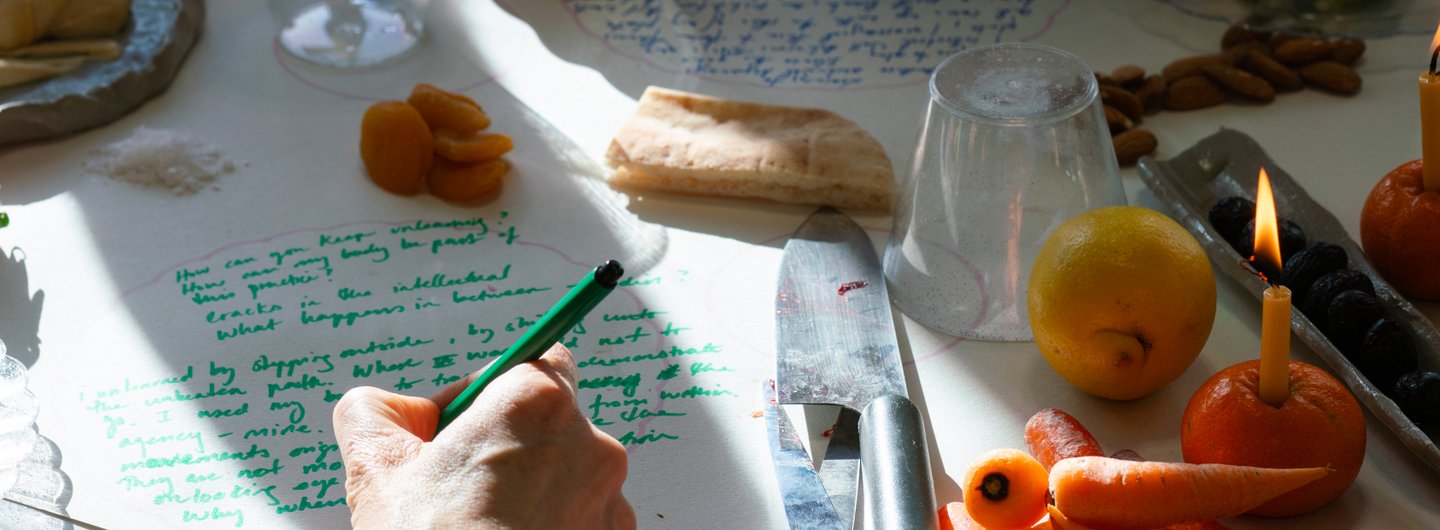
Key details
Date
- 11 November 2025
Author
- RCA
Read time
- 6 minutes
Join a global community of artists, designers and researchers redefining the role of creativity in tackling today’s biggest challenges. In this Q&A, Professor Hala Mansour, Head of Doctoral Programmes, discusses what makes the RCA’s PhD experience unique.
What does your role as Head of Doctoral Programmes at the RCA involve, and what is your vision for the future of doctoral research at the College?
My role involves leading the strategic direction and the development of doctoral education at RCA. This includes supporting doctoral supervisors and doctoral candidates and ensuring our doctoral programmes remain globally distinctive in their approach and scholarly inquiry.
My vision for the RCA is for it to continue to be the world leader in doctoral research that focuses on creative practices and critical thinking. A place where doctoral research doesn’t respond to change but shapes the future of reimagining doctorate. At the RCA, we are building a community where art and design research degrees contribute meaningfully to societal, environmental and technological transformation.
You joined the RCA with nearly three decades of experience in culture, identity and change , postgraduate research and executive education. How has that background shaped your approach to leading doctoral education within an art and design context?
That background has reinforced for me the value of research that is both rigorous and relevant. Coming from an interdisciplinary and professional education environment, I see research as something that must connect ideas to action whether that is through innovation, impact or influence. My lived experience has helped me to support a diverse range of students including mature and international.
At the RCA, that translates into supporting doctoral researchers to be not only creators of knowledge but also leaders capable of navigating complex systems, taking decisions and collaborating with others. I am passionate about helping researchers develop the intellectual confidence, methodology depth, and creative agency to take their work beyond academia.
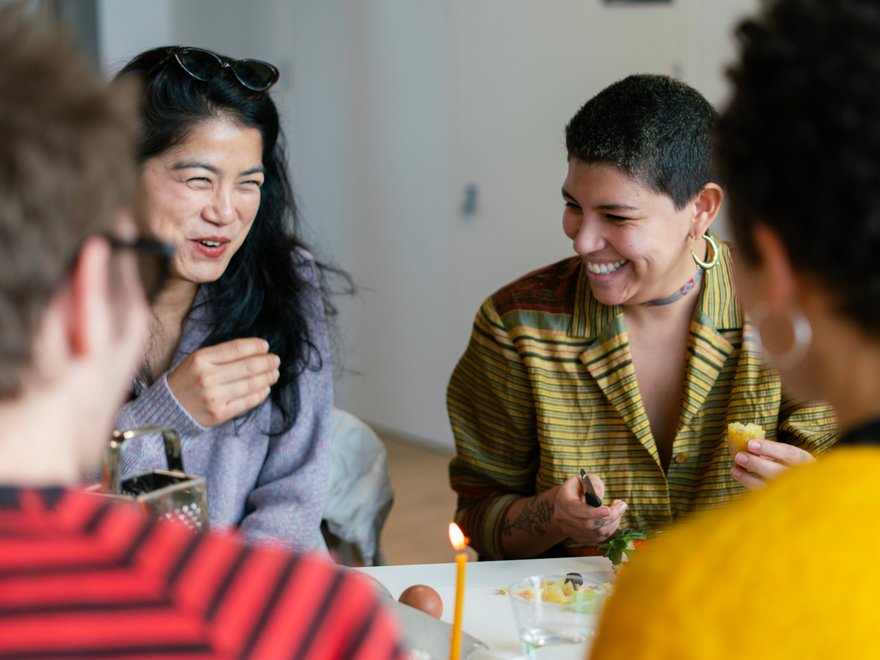
Participants at the RCA Research Biennale 2025
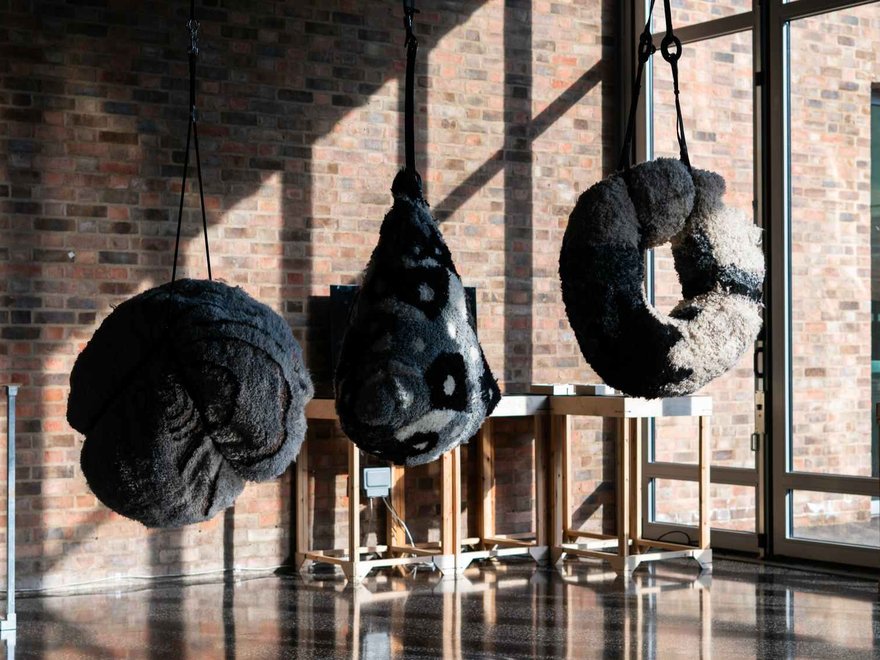
Installation by RCA PhD graduate Katrine Skovsgaard at the RCA Research Biennale
What do you think sets the RCA apart as a place to do a research degree; both in terms of the academic environment and the creative culture?
Our PhD community brings together artists, designers, architects, technologists and researchers who share a common purpose: to expand what creativity can do in the world.
Our research culture is unique in the way it unites rigorous academic enquiry with the creativity of making. In many ways, this is what defines the RCA experience.
To summarise, a PhD at the RCA means:
- Research through and informed by practice: where creative making, critical thinking and written scholarship continuously inform and enrich one another.
- An interdisciplinary and diverse community: where ideas cross boundaries between art, design, science, technology and social innovation.
- A distinctive approach to supervision: grounded in supportive relationships that nurture independent thinking and shared exploration.
- Boundary-pushing innovation: spanning art, design, AI, sustainability, cultural heritage, health, and the future of materials and communication.
- A vision for the future: doctoral education that not only responds to change, but actively shapes and makes it.
The RCA is known for its strong emphasis on practice-based research. How do you see creative practice and written scholarship working together within the PhD?
At the RCA, we don’t see creative practice and written scholarship as separate or competing modes of research but as interdependent. Practice allows for discovery through making and doing while writing the thesis provides critical articulation of those insights.
Together, they enable researchers to produce knowledge that is embodied, conceptual and communicable. At the RCA, we support research that can speak to both creative communities and academic discourse. The richness of RCA doctoral research lies in the dialogue between practice and theory.
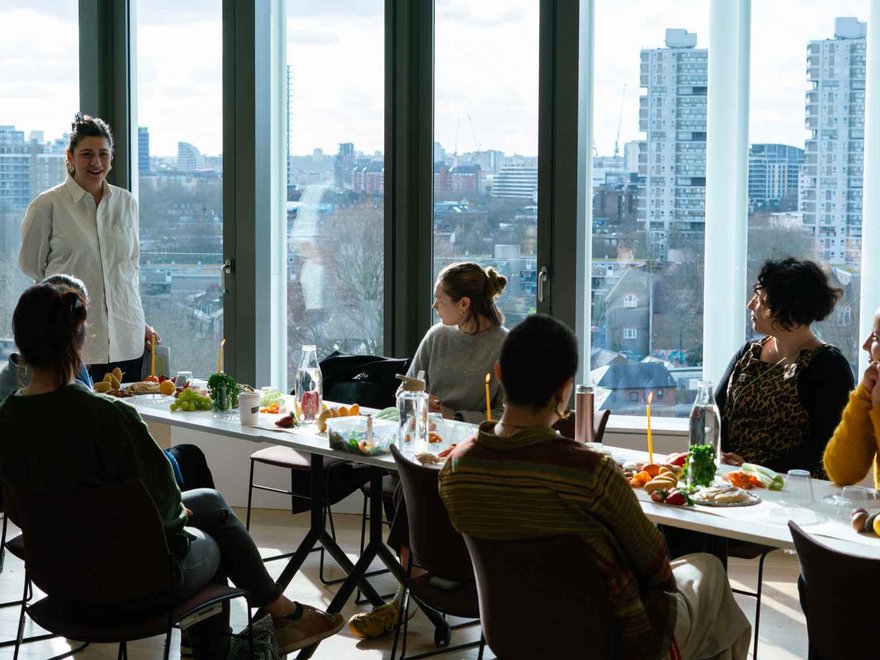
A discussion at the RCA Research Biennale 2025
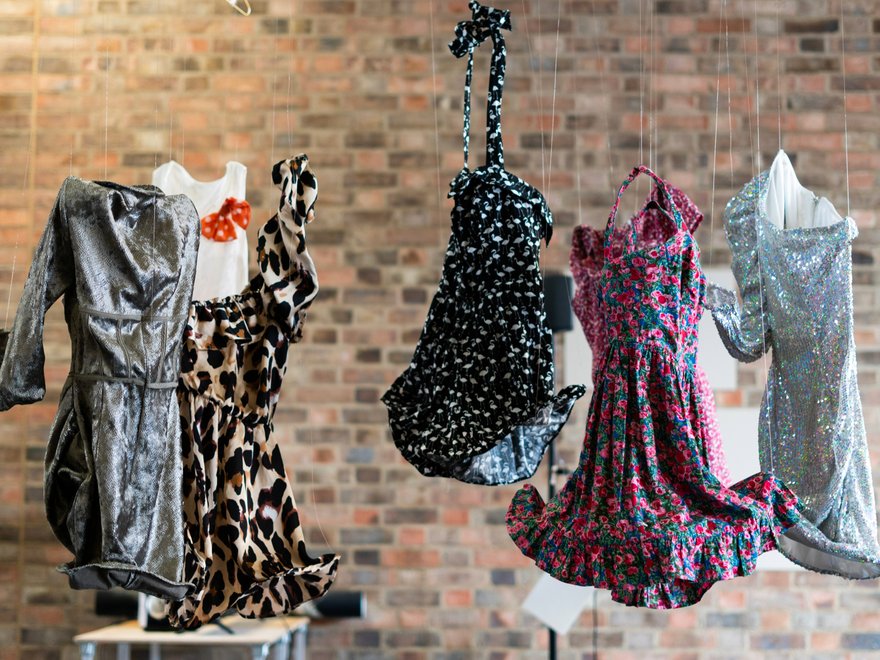
Installation by RCA PhD student Hannah Clarkson at the RCA Research Biennale
Supervision is such a crucial part of the doctoral journey. How does the RCA approach the supervisor–student relationship, and what do you think the College does differently in this area?
A survey that we conducted showed that 92% of our students indicated that they are satisfied that their supervisors have the skills and experience to supervise them. Supervision at the RCA is founded on collaboration and shared exploration. We see the supervisor – student relationship as a partnership in discovery rather than a hierarchical exchange.
Our supervisors skills are deeply rooted in practice and research which means they bring lived experience of creative and scholarly process. What is distinctive at the RCA is the level of care they bring when they guide, challenge and support researchers to find their own intellectual voice and contribution.
The RCA’s doctoral community is described as diverse and interdisciplinary. How do you encourage collaboration and a sense of shared purpose across such a broad range of research areas?
RCA doctoral researchers have the space to collaborate through different physical and intellectual venues. Through the RCA DTP weeks, PGR Fridays, social events and the Research Biennale, our researchers and supervisors share their knowledge, experience, research and practice.
Could you highlight some examples of recent or ongoing doctoral research that capture the kind of innovative, boundary-pushing work taking place at the RCA?
This year we created the RCA Doctoral Spotlight which highlights examples of our doctoral research work once a term and makes it visible to the public. The Research Biennale is another example of projects that are shaping the future of art and design.
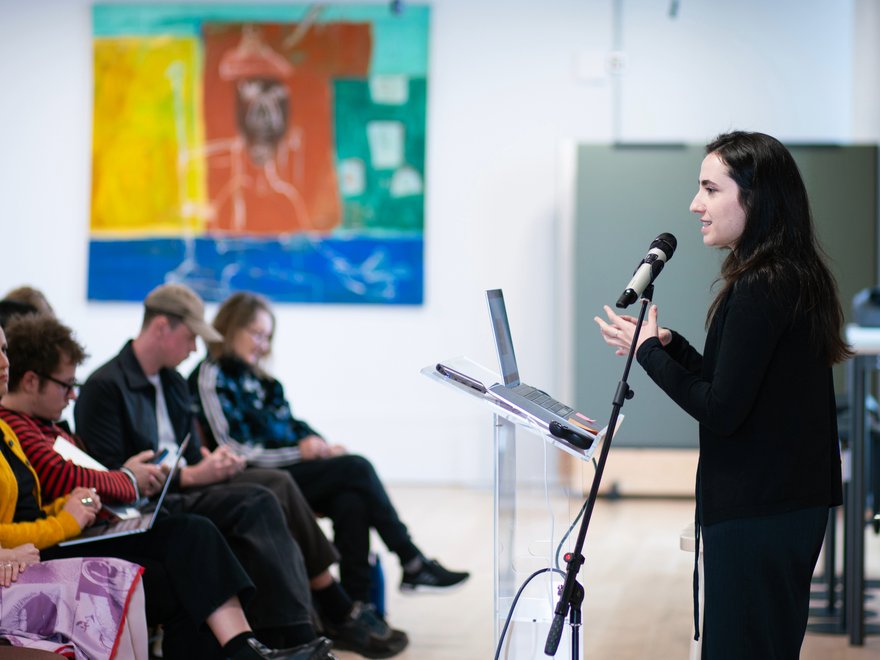
A lecture at the RCA Research Biennale 2025
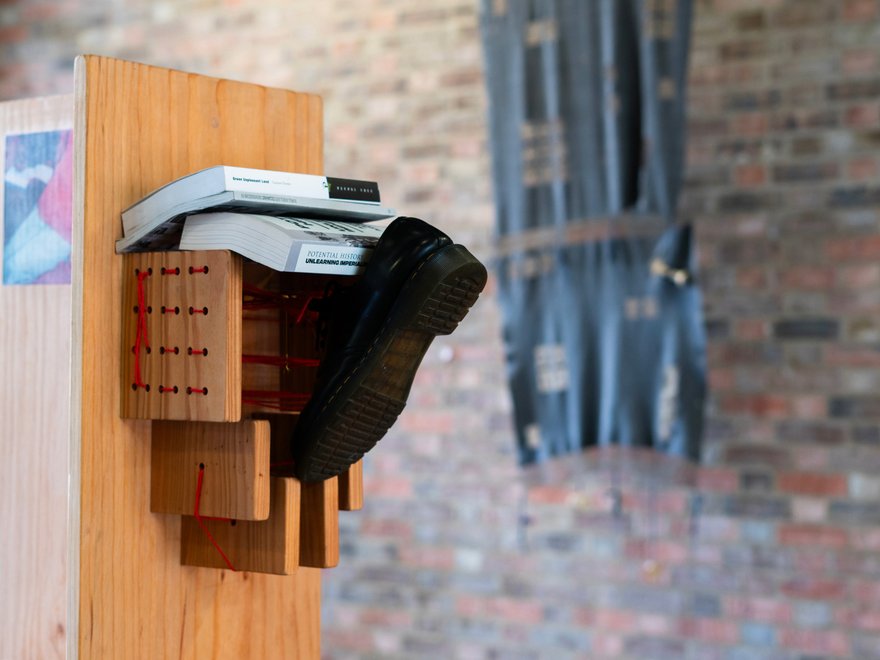
Installation by RCA PhD student Henrique Paris at the RCA Research Biennale
What support structures are in place to help PhD candidates develop not only as researchers but also as professionals, whether through teaching, exhibitions, publishing or other forms of impact?
We provide structured development through the doctoral training Programmes which includes training on research methods and methodology, ethics, writing, practice based research, career and professional development, publication and how to apply for funding and many more. Our goal is to help doctoral candidates graduate not only as scholars but as professionals ready to make impact and lead change.
For those considering applying to the RCA for a research degree, what advice would you give to prospective candidates, particularly when it comes to developing a strong proposal?
Start with the question that truly matters to you, something that keeps you thinking and making. It is also helpful to take a look at the current or previous research undertaken at the RCA, so you get a sense of the landscape.
A strong proposal is one that clearly defines your research questions, shows awareness of the context, and explains why your approach is significant, original and necessary.
At the RCA, we value research that challenges conventions and opens new ways of knowing. My advice would be: be bold, be curious and don’t be afraid to let your creative practice lead your intellectual journey.
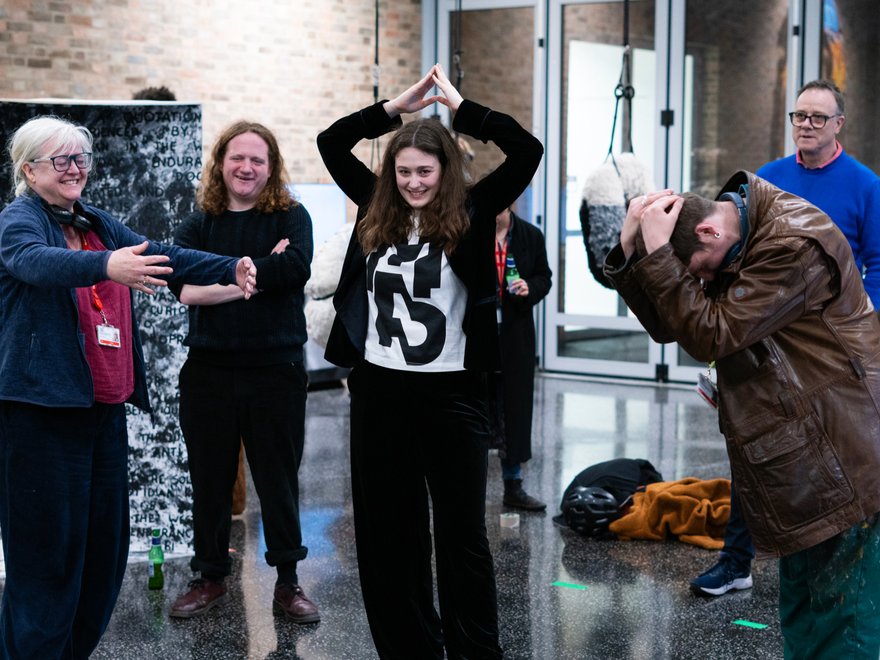
Performance led by Communications PhD student Laura Boutros at the RCA Research Biennale
Finally, what do you find most rewarding about leading the RCA’s doctoral programmes and what do you hope new students will take away from their time here?
What I find most rewarding about leading the RCA’s Doctoral Programmes is witnessing the transformation that takes place when researchers begin to see their work and themselves differently. There’s something extraordinary about supporting individuals as they move forward to create new knowledge.
The RCA is a place where doctoral researchers can cross boundaries and build confidence in their own intellectual and creative voice. Being part of that journey, and helping to create an environment where that kind of growth can happen, is deeply fulfilling.
What I hope every doctoral researcher takes away from their time here is a sense of possibility and belonging. That research is not just about producing a thesis or artefact but about developing ways of thinking, making and collaborating that will sustain them throughout their careers. I want them to leave the RCA not only as accomplished scholars or practitioners but as change makers: confident in their ideas, connected across disciplines, and equipped to make a meaningful impact in the world.
Start a Research degree in January
Find out more
You don't have to wait until autumn 2026 to study with us. We offer you the opportunity to start some of our postgraduate courses in the new year – browse our courses in the link below.
About Research Degrees
Our Research Degrees offer artists, designers and makers the opportunity to explore bold ideas, push creative boundaries, and conduct research that makes a difference.
